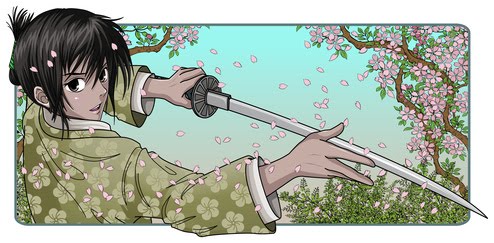As a writer of action/adventure stories, someone whose
stories frequently contain descriptions of violence, I’ve been
wondering about the meaning of violence.
First, does violence have a meaning? In a social context, it always
seems to have an intention, even if we often term it “senseless.” People engage
in violence when they have no other way to get what they want or need. Words
won’t work for them. But their violence can serve the purpose that words would
have. At least, that’s how they “mean” their violence.
We are all probably familiar with the rather cynical remark
that diplomacy is war continued by other means. This identification is meant to
bring out the threat of violence that underlies words between nations. It also
highlights the interchangeability of words and violence. Words can do the
bidding of violent intentions. But words can also cancel violence, either by
heading it off, preempting it as it were, or by making amends for it
afterwards.
Words, then, are like the alter ego of violence, the Dr,
Jekyll to the violence of Mr. Hyde. Violence is the silence of words. It speaks
when words no longer do. Of course, words sometimes speak violently, or in the
service of violence. But we may well wonder if such words still “mean what they
say.” They may only speak under compulsion. Can such words be true? Or must they be somehow false? Words that have no
truth of their own to tell lack the eloquence of peaceful
silence.
There’s a fundamental irony here: silence is peaceful, but
it is also complicit in violence. Violence begins where words end, but it also
somehow ends words. It silences them, forcing them to submit to its will.
I’ve probably only skimmed the surface of this difficult
topic, and maybe overlooked the most important features of the relationship of
words and violence. But I’m mainly interested in the meaning of violence in a
narrative context. In a story, what does it mean when the hero engages in a violent confrontation? Or when the
villain carries out a hideously delicious attack upon the hero?
The onset of violence in a story is both the end of words (for the antagonists) and the beginning of a new kind of description. The moment of violent conflict
is a target of descriptive prose of its own kind. The narrative typically
becomes compressed, events are packed together tightly, as are the passions
that find expression in conflict. The compression of the description is
essential to the depiction of a violent scene, not only from the point of view
of showing rather than telling, but also in order to capture the hectic energy
of violence itself.
Violence punctuates a story, both in terms of pacing and in
terms of meaning. A story cannot sustain the pacing of a violent encounter
continuously. It must juxtapose the energy of the violent scenes with the
loping stride of the rest of the story. Without a contrast in pace, the constant energy of
the story becomes turgid and oppressive.
The semantic dimension of violence also punctuates an
otherwise smooth flow, and it does so either by confirming or inverting the
sense of the surrounding events. Explicit violence is perhaps not a necessary semantic
element of narrative, but it may be implicit in all stories. If what we said
above is correct, that violence represents a sort of silent semantic limit of
language, then we might suspect that violence is essential to any linguistic
semantic achievement. Since in our inversion, war is the continuation of
diplomacy by other means, it becomes the violence implicit in all diplomacy.
Without it, diplomacy loses its meaning.
This mutual implication of violence and linguistic meaning
shows why scenes of conflict can heighten the semantic energy of a story. It shows us the limits of the semantic capacity of language. But
it is also clear that too much conflict can undermine a story, just as too many
power chords tend to make heavy metal music tedious. Our fascination with
descriptions of violence, with their semantic extremism, can distract from the narrative that they are supposed to
energize and punctuate.




